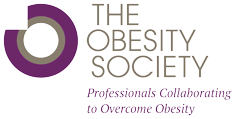The Obesity Society’s (TOS) grants program demonstrates our commitment to promote, reward, and encourage research in the field of obesity. TOS will begin accepting Letters of Intent (LOIs) for the Early Career Research Grant from April 1 to May 6, 2024.
Applicants may apply for multiple grants.
A description of each grant and the instructions on how to apply are below.
If you have any questions, please email [email protected].
Early Career Research Grant
The grant is offered by The Obesity Society as a member service to foster and stimulate new research ideas in any area of investigation related to obesity. The grant targets early-career investigators and post-doctoral fellows by funding proposals that demonstrate a high likelihood of resulting in new and innovative approaches in obesity research. Early-career investigators are defined as individuals who have received a PhD/DSc, DVM, MD or DO at the time of application. Investigators must also currently have a full-time, entry-level position (e.g., post-doctoral fellow, instructor, and up to Assistant Professor) at an established academic/research institution. Applicants may request up to $25,000. No indirect cost will be paid from this grant. Applicants invited to submit a full proposal will be notified approximately one month later. All applicants must be TOS members in good standing. This is a one-year grant and funding will begin the next calendar year.
Early Career Research Grant Eligibility Criteria:
The following applies to the Principal Investigator:
- Member of The Obesity Society (domestic and international)
- Early-career investigator or post-doctoral research fellow:
- PhD/DSc, DVM, MD or DO at the time of application
- Post-doctoral fellows, junior faculty, and up to Assistant Professors who have not yet received an NIH K-award, equivalent career-development award, or R-level research project grant
- Assistant Professors do not require a mentor
- Applications from post-doctoral research fellows must have a mentor
- Potential to generate future funding
PhD/DSc, DVM or MD/DO degree must be obtained by date of application submission. Applicants may not be a post-doctoral fellow for more than five years.
How to Apply
Phase 1
- Submit a Letter of Intent Cover Page
- Submit a 1-page Letter of Intent – (describe the scientific project, statement of specific aims, hypotheses, and how the study is new and innovative)
- 1-page on institutional letterhead
- 1/2 inch margins
- 11-point font size
- Submit an NIH-style biosketch for the principal investigator. If the principal investigator is a post-doctoral fellow, the biosketch of the mentor should also be included
- The LOI and biosketch(es) must be collated and submitted as a single pdf
Phase 2
Applicants selected by The Obesity Society’s Science Development Committee will be notified and requested to submit a full proposal package. Required documents include:
- Original LOI and Biosketch(es), from the LOI submission
- 3-page proposal (references not included)
- Brief introduction to the proposed study and rationale for investigation (How will this work benefit the field?)
- Statement of specific aims and hypotheses
- Material and methods, feasibility
- Anticipated results, limitations, alternatives
- Future plans (How will the findings of this project be leveraged for future work? What are the next steps, next grants?)
- Timeline
- Budget Form (1-page) with justification (1-page limit)
- Allowable Expenses
- Salary for technical staff, supplies, core use, subject recruitment, patient care costs, and other research-related expenses.
- Equipment/capital expenses up to $5,000.
- Travel up to $2,000 (ObesityWeek® encouraged).
- If principal investigator requires salary support, a maximum of one month summer salary or 8% effort support is allowable.
- Mentor Letter of Support (1-page, for post-doctoral fellows and instructors)
Criteria for Evaluating Applications
- Significance – impact, innovation
- Investigator – potential in academic research, diversity/inclusion
- Research Plan – study design, methods, feasibility, alternatives/limitations
- Future Plans – (How will the findings of this project be leveraged for future work? What are the next steps, next grants?)
